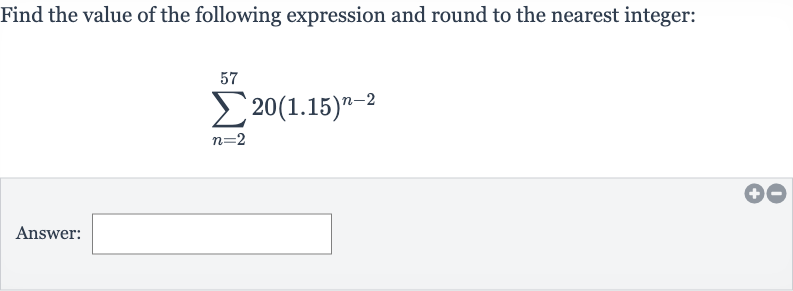Full solution
Q. Find the value of the following expression and round to the nearest integer:Answer:
- Given geometric series: We are given a geometric series with the first term and a common ratio . The sum of a finite geometric series can be found using the formula , where is the number of terms.
- Determine number of terms: First, we need to determine the number of terms in the series. Since the series starts at and goes to , the number of terms is .
- Apply sum formula: Now we can apply the formula for the sum of a geometric series: . Plugging in the values, we get .
- Calculate numerator: Let's calculate the numerator of the fraction: . Using a calculator, we find that .
- Calculate denominator: Subtracting this from gives us .
- Divide numerator by denominator: Now we calculate the denominator of the fraction: .
- Multiply by first term: We can now divide the numerator by the denominator: .
- Round to nearest integer: Multiplying this result by the first term of the series gives us the sum of the series: .
- Round to nearest integer: Multiplying this result by the first term of the series gives us the sum of the series: .Finally, we round the result to the nearest integer: rounds to .



